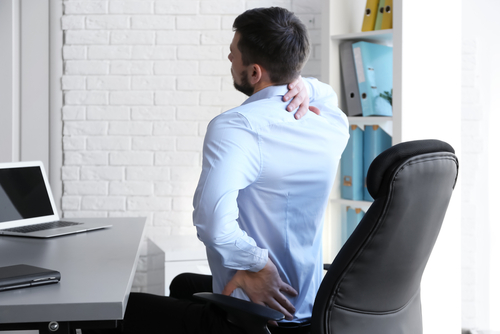Giving in to broken-down mattresses and sitting in improperly designed chairs has led to a wave of back and neck pain that can lead to more serious back problems in the future. The science of understanding proper posture holds many divergent views that could solve minor aches and pains, yet many still rely on poor physical support while sleeping or working that often hampers all proper posture progress made throughout the day.
The uncertainty of good and bad postures
When it comes to the ins and outs of good posture, finding a common link that solves most neck and back problems is an issue that has yet to make solid headway despite decades of research. At best, experts tend to disagree on what posture best relieves certain kinds of pain. To some, extra lumbar support only leads to fatigue in the upper back due to muscle strain and other issues while others need that very same support to avoid lower back pain instead. To further muddy the waters there are links between different kinds of posture and neck pain in office workers. Again, the issue of muscle strain and personal physiology can have a pronounced impact on individual pain levels and locations for that pain. One small comfort is a potential link between slumped or careless posture leading to more cases of neck strain or fatigue, but a lack of a definite cause points to the possibility of other contributing factors. Many workers across a wide spectrum of job titles and descriptions spend plenty of time immobile and working on a computer. Standing up for breaks and the occasional short walk might make up the bulk of exercise the average employee gets during the workday and spending large chunks of time on office equipment that may not be produced for quality over quantity might contribute to improper posture through poor support or even outright pain through a lack of padding, flexibility and other factors cut in order to save money. The downside is an epidemic of nearly untreatable back and neck pain that costs nearly $88 billion a year in the United States alone as suffers of chronic pain seek relief they simply cannot obtain.
Posture can’t solve every problem
If posture isn’t the problem, it may be time to step back and look at two other large contributing factors to chronic pains: Poor furniture and a lack of relief through stretching or exercise. Cheap furniture is a known cause of a variety of health problems and can be twice as troublesome for those who spend most of their lives in a chair. Even active individuals have to contend with sleeping eight hours a night, a figure that makes up roughly a third of our lifetimes. Relying on sagging mattresses or broken bed springs only invites poor sleeping posture and unnecessary strain that is obvious as soon as you awaken. Even reclining on your side on a bed that feels like your hips are touching your ribcage should be a bigger warning light to those on old mattresses. Compounded with a lack of exercise or movement in general, muscle pain is an obvious conclusion. Staying active helps prevent muscle pain and the act of stretching semi-regularly keeps your muscles from entering a static state in which they lose flexibility due to a lack of exploring your full range of motion. If you’re already contending with soreness, stretching can actually lead to further micro-tears in your muscle fibers rather than a quick and speedy recovery. In short, you can’t simply stretch after the pain is already in place. Prevention is once again better than the cure. If you feel how you sit is causing muscle pain, chances are you’re at least half right. Adding a lumbar pillow to an office chair of poor quality may help yet investing in a semi-frequent workout routine and furniture meant to properly support your body can make an even more impressive boost to your personal health. It’s not a quick life hack, but it’s certainly an effective one.





